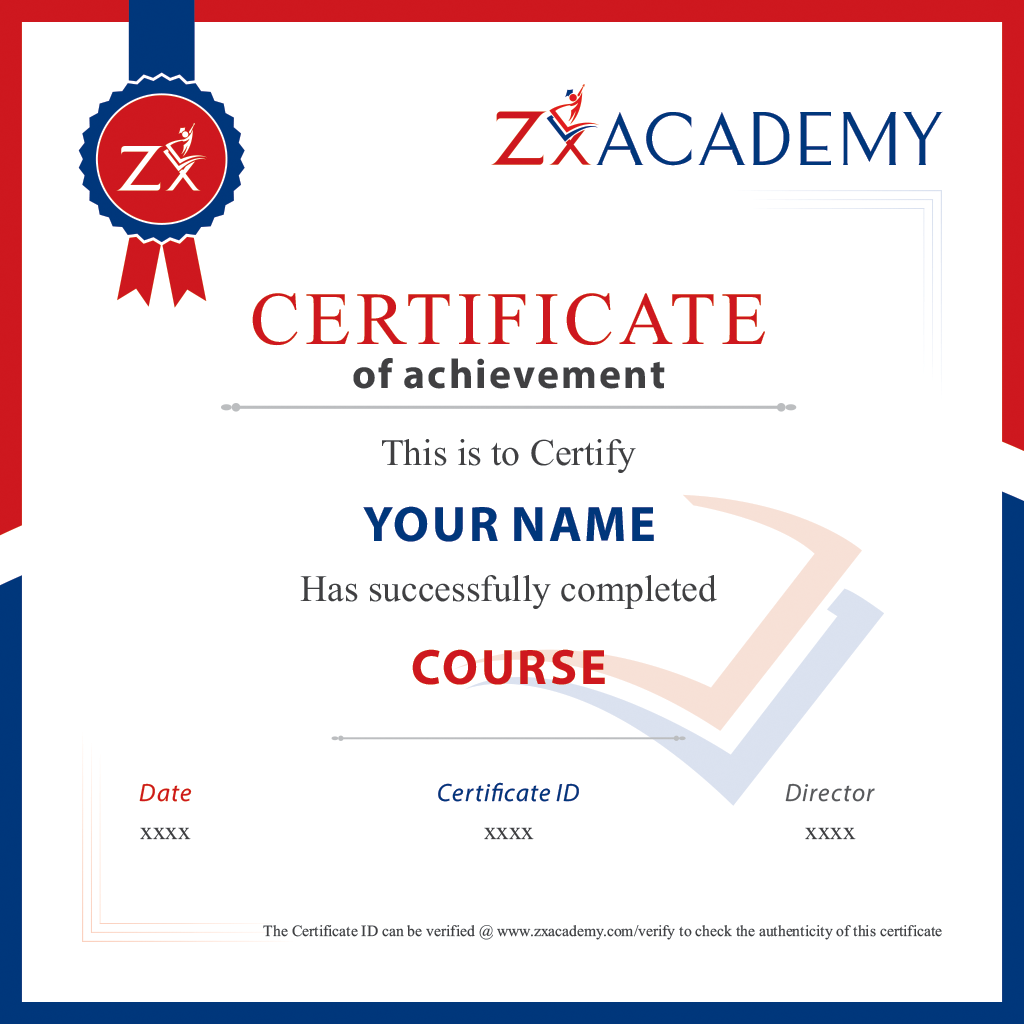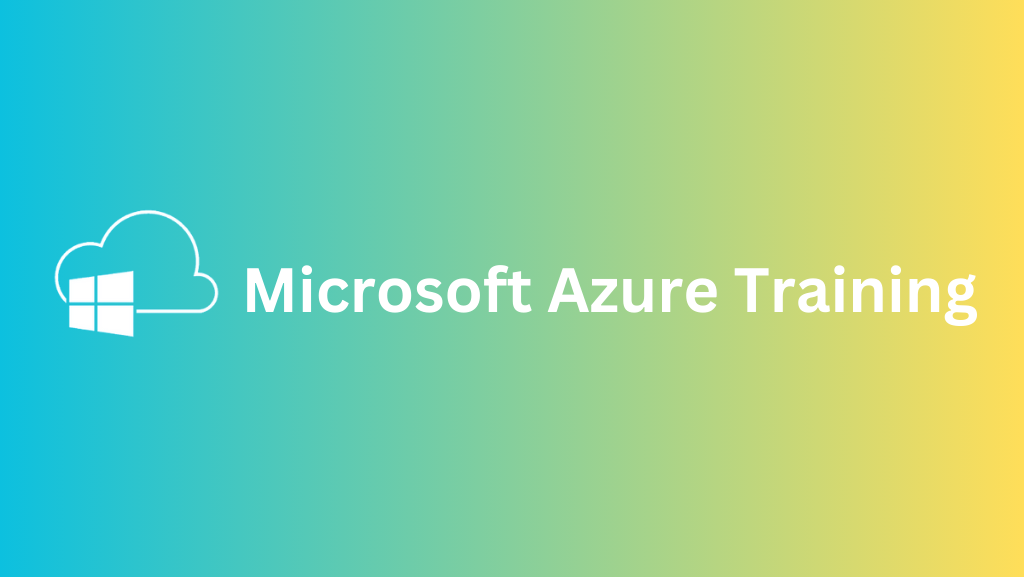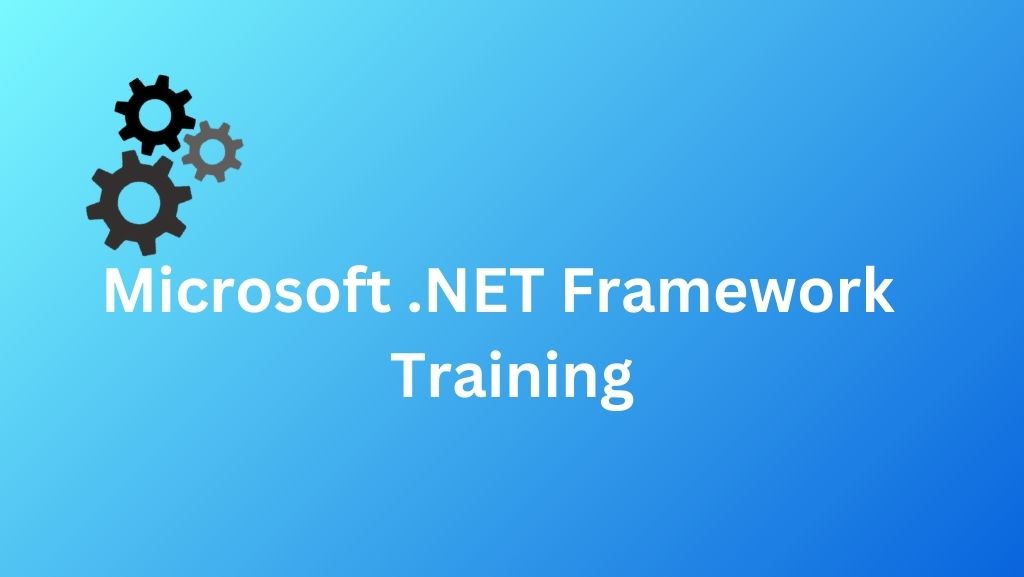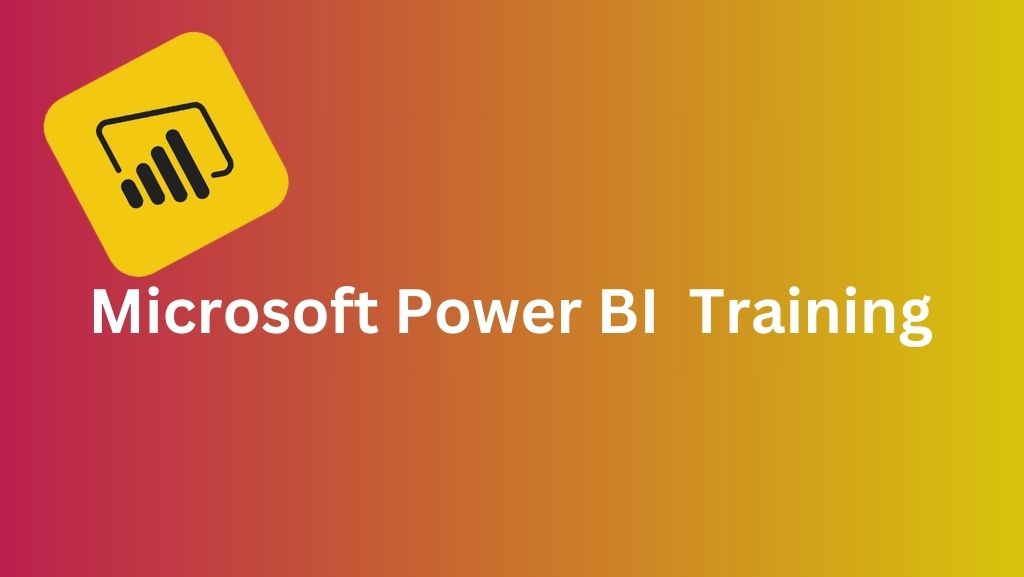Upcoming Batches for Microsoft Azur DevOps (AZ-400)
Not compatible with the above dates?
Microsoft Azur DevOps (AZ-400) Course Details
Zx Academy's Microsoft Azure DevOps Solutions Certification (AZ-400) training course is curated by industry experts per industry demands and requirements. The Azure DevOps Solutions Certification (AZ-400) gives you a good foundation to appear for the Microsoft Certified. This course also helps you to learn how to implement and design strategies for source code management, continuous integration, collaboration, compliance, monitoring, and delivery.
In order to take the Microsoft Azure DevOps Solutions course, a person must be proficient with Agile practices. Familiarity with both Azure development and Azure administration and expert knowledge in at least one of these concepts is highly recommended. The Microsoft Azure DevOps professionals must implement DevOps practices for version control, infrastructure-as-code, compliance, configuration management, release, build, and testing when using Azure technologies.
Highlights of Zx Academy Training:
- 24/7 Support throughout the training period
- Live online classes
- Training under industry experts
- Free study material
- Flexible timings to all our students
What will you learn in Microsoft Azure DevOps Solutions Certification (AZ-400) training?
After completion of the Microsoft Azure DevOps Solutions certification training, you will learn:
- Virtual Network Connectivity
- Azure Resource Manager
- Windows PowerShell
- Git, Docker, Ansible, and Jenkins
- Azure Administration
- SVN, Maven, and Nagios
- Azure Test Plans and Azure Artifacts
- Azure Boards, Azure Repos, and Azure Pipelines
Who should take this Microsoft Azure DevOps Solutions Certification (AZ-400) training?
The Microsoft Azure DevOps Solutions Certification (AZ-400) training course is beneficial for:
- Software Developers
- Project Managers and Technical Leads
- Cloud Professionals and Solutions Architects
- Those who want to clear AZ-400 certification
- Learners who want to build a career around Azure DevOps
What are the prerequisites for taking Microsoft Azure DevOps Certification (AZ-400) training?
The prerequisite for taking Microsoft Azure DevOps certification (AZ-400) training is the basic knowledge of any programming language.
Why should you go for Microsoft Azure DevOps Certification (AZ-400) training?
At present, the demand for DevOps is very high, and more than 85% of the organizations/companies will adopt DevOps shortly. According to Indeed, there is a great demand for people who have skills in both Azure and DevOps. Zx Academy's Microsoft Azure DevOps Solutions Certification training helps you learn DevOps and Azure.
Salary Trends:
According to Glassdoor, the average salary of a Microsoft Azure DevOps Engineer is $105,000 per year.Are you excited about this?
Microsoft Azur DevOps (AZ-400) Curriculum
What is Microsoft Azure?
Microsoft Azure Services
Creating a Microsoft Azure Account
Azure CLI, Azure PowerShell
Managing Azure Resources & Subscriptions
Azure Resource Manager
Microsoft Azure Architecture
Azure Resource Manager
Managing Azure Resources
Azure Tags
Azure Storage Account & its types
Azure Blob Storage
Azure Content Delivery Network (CDN)
Azure Files Storage
Azure File Sync
Azure Queue Storage
Azure Storage Explorer
Azure Shared Access Signature (SAS)
Azure Databox
Azure Storage Replication
Data Replication Options
Azure Import/Export Service
Data Disks in Azure
Azure VMs & Interfaces
ARM templates
VHD templates
Custom Images of Azure VM
Virtual Machine Scale Sets
Virtual Machine Availability Sets
App Service plan
Networking for an App Service
Deployment slots
Container image
Azure Kubernetes Service
Azure Container Registry
Azure Vnet Components
IP Address – Public & Private IPs
Azure Vnet Subnets
Azure Network Interface Cards (NIC)
Network Security Group (NSG)
Route Tables
Service Tags
Azure DNS
Private DNS
Azure Front Door Service
Azure Traffic Manager
Application Security Groups
Azure Load Balancers
Azure Firewall
Azure Bastion
Network Watcher
Azure Express Route
Express Route Circuits
Express Route Peering
Role Based Access Management (RBAC)
Role Definitions
Role Assignment in Azure Resources
Azure Users & Groups
RBAC Policies
Windows AD Vs Azure AD
Azure AD Users
Azure AD Groups
Azure AD Domains
Azure AD Tenants
Authentication Options
Azure AD Connect
Self Service password Reset (SSPR)
Multi Factor Authentication (MFA)
Resource Locks
Azure Metrics
Log Analytics
Alerts and actions
Application Insights
Backup reports
Recovery Services Vault
Backing Up Azure Virtual Machines
VM Backup Policies
Restoring Azure Virtual machines
Installation of DevOps Tools on cloud
Git
Docker
Maven
Jenkins
Puppet
Ansible
Kubernetes
Nagios
Software Development Life Cycle
Traditional Models for SDLC
Why DevOps?
What is DevOps?
DevOps Lifecycle
DevOps Tools
What is Maven?
Running Test Cases on Chromium Web Driver
What is Headless Mode?
Jenkins Master Slave Architecture
Understanding CI/CD Pipelines
Creating an end to end automated CI/CD Pipeline
Types of Version Control System
Introduction to SVN
Introduction to Git
Git Lifecycle
Common Git Commands
Working with Branches in Git
Merging Branches
Resolving Merge Conflicts
Git Workflow
Understanding Docker Lifecycle
Components of Docker Ecosystem
Common Docker Operations
Creating a DockerHub Account
Committing changes in a Container
Pushing a Container Image to DockerHub
Creating Custom Docker Images using Dockerfile
Deploying a Multi-Tier Application using Docker Network
Using Docker Compose to deploy containers
What is Container Orchestration
Container Orchestration Tools
Introduction to Docker Swarm
Deploying a 2-Node Cluster using Docker Swarm
Configuration Management Tools
What is Puppet
Puppet Architecture
Setting up Master Slave using Puppet
Puppet Manifests
Puppet Modules
Applying configuration using Puppet
Puppet File Server
Ansible vs Puppet
Ansible Architecture
Setting up Master Slave using Ansible
Ansible Playbook
Ansible Roles
Applying configuration using Ansible
Docker Swarm vs Kubernetes
Kubernetes Architecture
Deploying Kubernetes using Kubeadms
Alternate ways of deploying Kubernetes
YAML Files
Creating a Deployment in Kubernetes using YAML
Services in Kubernetes
Ingress in Kubernetes
Case Study – Kubernetes Architecture
21.2 Introduction to Nagios
21.3Nagios Architecture
21.4 Monitoring Services in Nagios
21.5 What are NRPE Plugins?
21.6 Monitoring System Info using NRPE plugins
IaC vs Configuration Management
Introduction to Terraform
Installing Terraform on AWS
Basic Operations in Terraform
Terraform Code Basics
Deploying and end-to-end architecture on AWS using Terraform
key features
azure devops tools
azure devops organizations and projects
Introduction to Azure Repos
Compare TFVC and Git
Key concepts in azure repos
Search your code in Repos
what is TFVC
Azure Repos Integrations
Key concepts in artifacts
working with packages
Feeds
views and upstream sources
Connecting to azure pipelines
What are Azure test plans
Exploratory and manual testing
Test from kanban board
Creating Test Plans
Testing web apps
Why use Azure Pipelines
Deploying to Azure
Key concepts in Pipelines
CI Triggers in pipelines
YAML Basics
Ecosystems and Integration
Setting up CI build
Adding Tests to the Pipeline
Agents and Tasks
Why use azure boards
agile project management best practices
Basic concepts of Azure Boards
Connecting boards to github
Work items
Kanban boards
Sprints
Scrum and plans
Azure Boards integrations
IaC vs Configuration Management
Introduction to Terraform
Installing Terraform on AWS
Basic Operations in Terraform
Terraform Code Basics
Deploying and end-to-end architecture on Azure using Terraform
Like the curriculum?
Projects on Microsoft Azur DevOps (AZ-400)
Continuous Integration/Continuous Deployment Pipeline for Web App:
Project Description: Design a simple Continuous Integration and Deployment pipeline for a web application using Azure DevOps to help students better grasp the core concepts behind Continuous Integration and Continuous Deployment.
Key Learning Objectives for this tutorial include setting up an Azure DevOps project. Configuring a source code repository. Setting up a build pipeline to compile code. Implementing release pipeline for deployment. Automating testing and quality checks. Its Project Steps
Create a Git repository to host the web application's source code, configure a build pipeline that compiles it, packages it for deployment and create a release pipeline to deploy to test environments - automating quality checks along the way!
As you modify the code, observe its impact. As optional enhancements: Implement a production environment deployment stage with approval gates. Set an automatic rollback procedure should any deployments fail.
Infrastructure as Code (IaC) with Azure Resource Manager Templates:
Project Description: Students will create Azure Resource Manager (ARM) templates to provision and manage Azure resources. This project introduces them to Infrastructure as Code (IaC), its significance in modern DevOps practices, as well as IaC.
Key Learning Objectives: On This Module You Will: Understand ARM Templates and IaC concepts. Create templates for Azure resource provisioning. Manage Parameterization & Template Linking.
Project Steps for Deploying and Testing Infrastructure Using Templates.
Learn the fundamentals of ARM templates and their JSON structure before creating a simple ARM template that provisions an Azure resource such as virtual machine or storage account.
Test out parameterization to make your template more flexible. Integrate multiple templates to model complex infrastructure. Deploy and test with Azure DevOps pipelines. Implement version control for ARM templates. And finally, try our optional enhancements:
Expand your ARM templates to incorporate additional Azure resources and dependencies, then utilize infrastructure monitoring and scaling strategies based on metrics.
Project Resources
Microsoft Azur DevOps (AZ-400) Certification

Get certification or Get ahead with Zx Academy’s Certification or
Faq’s for Microsoft Azur DevOps (AZ-400)
Reviews
madhavi




